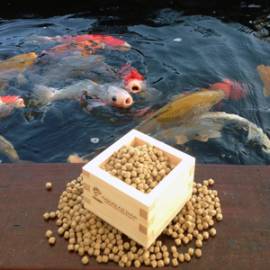Do you have verbena in the garden? These are beautiful plants that are extremely popular! However, what happens if a dog eats verbena?
Connect with a verified veterinarian in minutes. Licensed vets are available 24/7 to answer your questions. No need to worry about your furry family member.
Has your dog eaten verbena? Are you worried the verbena will make your dog sick? If so, then you’ve come to the right place. We understand it can be scary when your dog eats something he shouldn’t.
In this article, we’ll take a look at verbena and whether or not it can make your dog sick. Let’s get started!
What is Verbena?
Verbena, also called lantana, are perennial flowering plants that live in tropical parts of the US and other countries. Verbena are shrubs, which have beautiful flowers that come in red, orange, yellow, blue, and white florets. There are other colors, too! They’re very pretty.
In the US, verbena generally grows in the southeastern part of the country (Georgia, Florida, the Carolinas, and along the Gulf Coast). What’s interesting to note is that the fruit of the verbena plant is loved by some types of birds; however, the other parts of the plants are toxic.
But what happens if a dog eats verbena?
Verbena & Dogs
Verbena contains toxic substances that include pentacyclic triterpenoids and pentacyclic triterpene acids. All parts of the plant are toxic for dogs, especially the berries.
The substances contained in all parts of the plant can damage your dog’s gallbladder, bile ducts, and liver. Verbena poisoning can lead to death in dogs.

Review symptoms, medications & behavior to keep your pets healthy with a Vet Online in just minutes.
Ask a Vet Live NowSymptoms of Verbena Ingestion in Dogs
You may notice these symptoms if your dog has eaten verbena:
- Bloody diarrhea
- Frequent urination
- Paralysis
- Loss of appetite
- Liver failure
- Depression
- Abdominal swelling
- Shock
- Vomiting
- Sensitivity to the sun
If you notice these symptoms in your dog, call the vet immediately. Verbena toxicity can lead to death in dogs. This is a medical emergency.
Treatment of Verbena Ingestion in Dogs
At the vet’s, they will perform a complete physical exam of your dog. This may include lab work and other tests.
Treatment usually means your dog will require an IV for fluids and electrolytes. The vet may also use activated charcoal to help absorb toxins from your dog’s system. Additional treatment may include antibiotics and support/treatment for other symptoms such as liver or kidney issues. It’s highly probable your canine companion will need to stay in the hospital until he’s improved.
The good news is that dogs who are promptly treated for verbena poisoning can make a complete recovery!
Connect with a verified veterinarian in minutes. Licensed vets are available 24/7 to answer your questions. No need to worry about your furry family member.

Julie
Julie is a graduate of the University of North Carolina, Wilmington, where she studied Animal science. Though contrary to the opinion of her parents she was meant to study pharmacy, but she was in love with animals especially cats. Julie currently works in an animal research institute (NGO) in California and loves spending quality time with her little cat. She has the passion for making research about animals, how they survive, their way of life among others and publishes it. Julie is also happily married with two kids.
Review symptoms, medications & behavior to keep your pets healthy with a Vet Online in just minutes.
Ask a Vet Live Now




